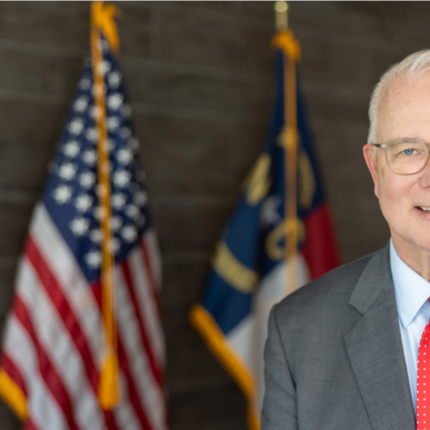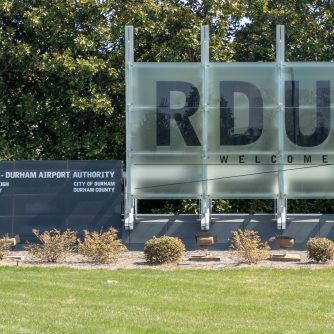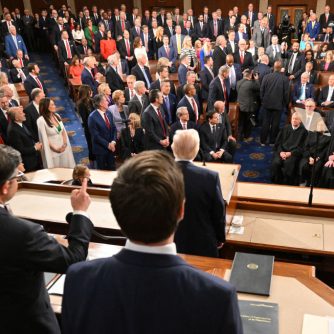In this episode of Carolina Newsmakers, host Don Curtis sits down with North Carolina’s newly elected State Auditor, David Boliek, to discuss his role, responsibilities, and key initiatives since taking office. Boliek, who assumed the position on January 1, provides an in-depth look at the function of the State Auditor’s office, the challenges of overseeing billions of dollars in assets, and his plans for improving efficiency and accountability in state government.
Understanding the Role of the State Auditor
Boliek explains that the State Auditor’s job is often misunderstood, with some assuming it involves auditing personal income taxes. Instead, the primary responsibility of the office is to ensure fiscal accountability at all levels of North Carolina’s government. This includes overseeing state agencies, municipalities, and various organizations that receive public funds. The office functions as a financial watchdog, identifying inefficiencies and ensuring taxpayer dollars are spent wisely.
One of the first things Boliek noticed upon assuming office was the immense scale of North Carolina’s state assets, which range from infrastructure projects to state-owned buildings and parks. Beyond financial oversight, he emphasizes that the most valuable resource in the state is its people—those working in government and public service.
Challenges and Priorities
Boliek shares some of the surprises he encountered in his first month in office, including the strong commitment of the existing staff and the willingness of other state agencies to collaborate on audits. He had initially expected resistance or even a wave of resignations, but instead found a team dedicated to ensuring the efficient operation of government.
A major challenge facing the auditor’s office is the outdated technology used across different agencies. Because state agencies implemented digital systems at different times and with different objectives, there is often a lack of interoperability between them. Boliek notes that modernizing these systems is a priority, not only to improve efficiency but also to enhance cybersecurity and protect sensitive data.
One of the most significant recent changes to the office’s responsibilities is its expanded role in overseeing elections. Under a new law, the State Auditor is now responsible for appointing members of the State Board of Elections and managing its budget. Boliek acknowledges that he did not seek this responsibility, but he is committed to administering it in a fair and nonpartisan manner.
Auditing State Agencies and Programs
The State Auditor’s office conducts both financial and performance audits to ensure government agencies are operating effectively. Boliek highlights the importance of performance audits, which assess how well agencies are using their resources to serve North Carolina’s residents. He believes these audits can lead to meaningful improvements in government efficiency.
One major upcoming audit will focus on the North Carolina Division of Motor Vehicles (DMV). Boliek says that complaints about long wait times and inefficiencies at the DMV are widespread, making it a prime candidate for a comprehensive review. The audit will examine everything from how appointments are scheduled to how quickly vehicle registrations are processed. Boliek aims to provide actionable recommendations that will streamline DMV operations and improve customer service.
Additionally, his office will conduct audits on school systems across the state to ensure that education dollars are being used efficiently. With education funding making up more than half of the state’s budget, Boliek sees this as a crucial area for oversight.
Investigating Fraud, Waste, and Abuse
The auditor’s office also investigates potential fraud, waste, and abuse of public funds. Citizens can report suspicious activity through a confidential tip line, and Boliek emphasizes that every tip is reviewed. He mentions that one recent tip has already led to an investigation that could save a local community thousands of dollars.
While fraud is not assumed to be widespread, the auditor’s office plays a key role in deterring misconduct by maintaining the ability to conduct in-depth investigations when necessary. The office can audit municipalities, county governments, and even state universities to ensure public funds are being used appropriately.
Disaster Recovery and Financial Oversight
Boliek also discusses his office’s role in tracking disaster relief funds, particularly in the wake of recent flooding in western North Carolina. His team will conduct real-time audits to ensure that recovery funds are being distributed efficiently and effectively. Rather than waiting years to evaluate how disaster relief money was spent, his office will monitor expenditures as they happen, reducing the risk of mismanagement.
The state auditor is also responsible for reviewing federal grants that flow into North Carolina. Boliek highlights the importance of ensuring that research grants and other federal funding are being used properly, particularly at the state’s universities. Institutions such as UNC-Chapel Hill, Duke, and NC State receive large amounts of federal research dollars, and his office works to ensure that these funds are spent effectively.
Looking Ahead: Goals for the Future
Boliek outlines several key objectives for his tenure as State Auditor:
- Improving Efficiency at the DMV: Conducting a comprehensive audit and recommending reforms to improve service for North Carolina residents.
- Tracking Disaster Recovery Funds: Ensuring that funds allocated for flood recovery in western North Carolina are used effectively.
- Auditing School Systems: Evaluating how education funds are spent to ensure schools are operating efficiently and students are receiving the best possible education.
- Modernizing Government Technology: Implementing better software and cybersecurity measures to streamline audits and protect taxpayer dollars.
- Strengthening Investigative Capabilities: Expanding the office’s fraud detection efforts and ensuring state agencies are held accountable.
As North Carolina continues to grow and evolve, Boliek sees his role as critical in ensuring that state resources are managed responsibly. By focusing on efficiency, transparency, and accountability, he hopes to build trust in government institutions and demonstrate the value of his office’s work.





